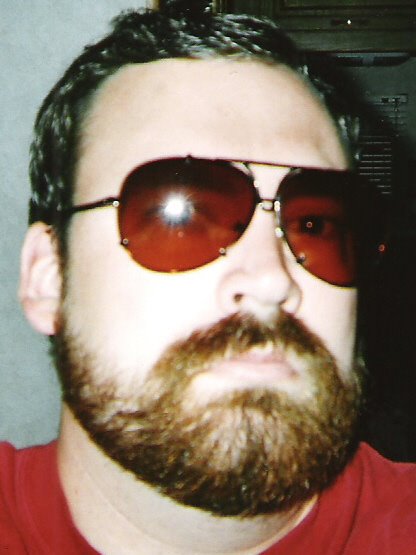Sometimes my wife and I will play-fight, and she’ll always go for the low-blow hit—you know: ‘south of the border?’ She’s doesn’t fight fairly, but she is effective. Or, sometimes we’ll head-butt each other (I have the obvious advantage with this one), but no matter how we get started wrestling around, she’ll always kid me about my needing an attitude adjustment. She always adds, “And I’m just the one to give it to you!” In reality, however, I’ve come to realize that I’m the only one who can truly adjust my ‘tude. Lisa can prompt me, but she can’t really accomplish what needs to be done inside of me to align my thoughts, feelings, and words with a more positive outlook.
If I don’t choose to ‘check myself’ regularly and do any necessary adjustments, my day goes south in a hurry. I need my wife, close friends, family members, and, most importantly, the Holy Spirit to urge me to undergo some diagnostics. I often need their help in determining what’s out of focus with my perspective and how I can recalibrate. See, that’s where all the traps lie. My first instinct is to blame other people, circumstances, and agencies for my headaches and hardships. My stress has to be someone else’s fault, doesn’t it? There’s so much I can’t control and change. My anxiety has resulted from little else. However, lately, I’m beginning to find freedom in that. I believe there’s solace available in knowing that what I can’t change doesn’t have to change me, but I can change my attitude in response to the situations in which I find myself. In other words, if I let go of what I never had a grasp on anyway, maybe I’ll end up possessing much more than I ever thought possible. If I begin to accept the unchangeable, perhaps I can focus my mental and physical energy into more worthwhile causes and accomplishable achievements. (My priorities are beginning to become more well-grounded also.) I love this quotation my friend shared with me the other night. It’s from an A.A. book: “And acceptance is the answer to all my problems today. When I am disturbed, it is because I find some person, place, thing, or situation—some fact of my life—unacceptable to me, and I can find no serenity until I accept that person, place, thing, or situation as being exactly the way it is supposed to be at this moment. Nothing, absolutely nothing happens in God’s world by mistake. I need to concentrate not so much on what needs to be changed in the world as on what needs to be changed in me and my attitude.” My wife has another great saying, “Get a real problem and call me back!” So often, the real problem is me and my attitude. I can begin to focus on what can be changed (me) and relieve so much stress from my life because I’ve ceased banging my head against the wall of the immovable. I can begin to give and receive grace. Maybe I can grow as a person. I could fall down and learn how to get up. I should give without expecting anything in return. I might find myself in helping others. Maybe I can just let go and end up with so much: real life and reckless love. Just maybe . . . Well, I have to go and call my wife now.
Anyone who holds on to this life just as it is destroys that life. But if you let it go, reckless in your love, you’ll have it forever, real and eternal.
John 12:25 (THE MESSAGE VERSION)
God grant me the SERENITY to accept the things I cannot change; COURAGE to change the things I can; and WISDOM to know the difference. Living one day at a time; enjoying one moment at a time; accepting hardships as the pathway to peace; taking, as He did, this sinful world as it is, not as I would have it: trusting that He will make things right is I surrender to His will; that I may be reasonably happy in this life and supremely happy with Him in the next. Amen.
How rivers change their path
-
The other day, we took the kids to the bookstore to pick up a shiny new
book. The girls picked books out with no problem (other than maybe having
too many ...
12 years ago




